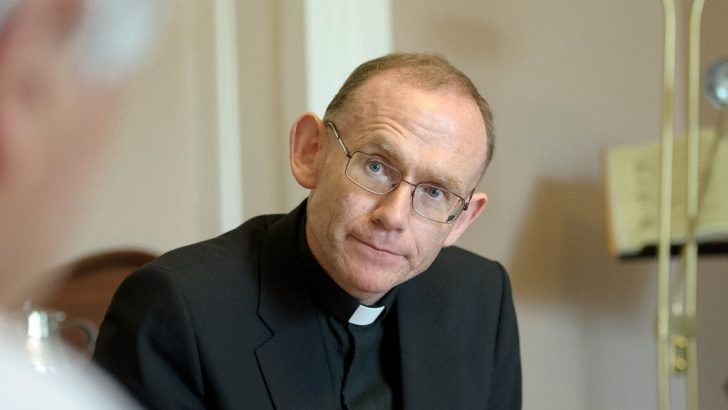Under new plans being considered, men training to be priests would spend most of their time working in parishes rather than in the traditional seminary environment.
It would see seminarians living in parishes with more time involved in active pastoral work alongside priests and lay pastoral workers and would, according to one bishop, give them a more realistic insight into priesthood in contemporary Ireland.
A committee appointed by the hierarchy is currently drawing up a new programme for the formation of priests in Ireland. It is part of what Primate of All-Ireland Archbishop Eamon Martin has called “courageously moving the whole formation experience beyond past and present methods so that priests will be suitably prepared to engage with, and evangelise, the secularised contemporary culture”. The document is known as the Ratio Nationalis.
Bishop Fintan Monahan of Killaloe told The Irish Catholic that he believed seminarians being formed in parishes “would be more practical” than the current model. He said it would give them “first-hand experience of working together with priests and laypeople”.
“The seminaries are almost monastic in character, and it is a shock to the system for newly-ordained priests when they come to the parish.
“Something based in the parish would help make it a more seamless transition,” Bishop Monahan said pointing to the “very positive” impact he sees the pastoral year seminarians complete at present having on aspirants to the priesthood.
He said “every option is being looked at in the context of decreased numbers” of people preparing for priesthood.
He said the evidence from abroad – particularly in France – is that the parish-based model “has been reasonably successful”.
However, he cautioned that there are challenges – particularly for dioceses that do not have a university. “Some parishes are a long way from a university where they could study and that would present practical difficulties in some cases”.
He said he believed that a parish-based programme could help make formation “more down to earth”.
Citing other examples of ‘practitioner-based’ training such as for nurses and doctors, he said the parish model “would allow for a seminarian to be steeped and immersed in parish and diocesan life”.
There are approximately 23 seminarians in Maynooth at present and around a dozen in the Irish College in Rome, and Bishop Monahan said that the low numbers in formation has “focused attention”. “Can we keep two seminaries?” he asked.
“The old seminary model served its purpose, but there’s a definite need to look at other models now,” he said.
Describing both Maynooth and the Irish College as “national treasures” he said there is “huge affection” for both institutions.
Fr Tom Surlis, rector of Maynooth, said the consultation process has been going on since the start of the year and that the committee has already received responses from diocesan vocations directors, councils of priests and leaders of religious congregations amongst others.
Formation
He said that the committee is working “in tandem with the trustees of the college, the wider Episcopal Conference” and others “to learn from the insights gained at various conferences on new models of priestly formation held in the past two years in Maynooth and in Rome.
“The key task facing the committee is to ensure that the programme of priestly formation in Irish seminaries continues to be fully in keeping with the teaching of the Magisterium and the law of the Church”.
He said a key part of the work of the committee will be looking at how prospective priests are accompanied before and during their formation.
“In a vocational environment where most applicants have either completed a third-level qualification and/or have worked in their particular field for a number of years, this period of accompaniment and discernment is very important in terms of helping applicants to properly examine their motivations for pursuing a vocation to the diocesan priesthood in Ireland,” he said.


 Greg Daly
Greg Daly Bishop Fintan Monahan
Bishop Fintan Monahan 